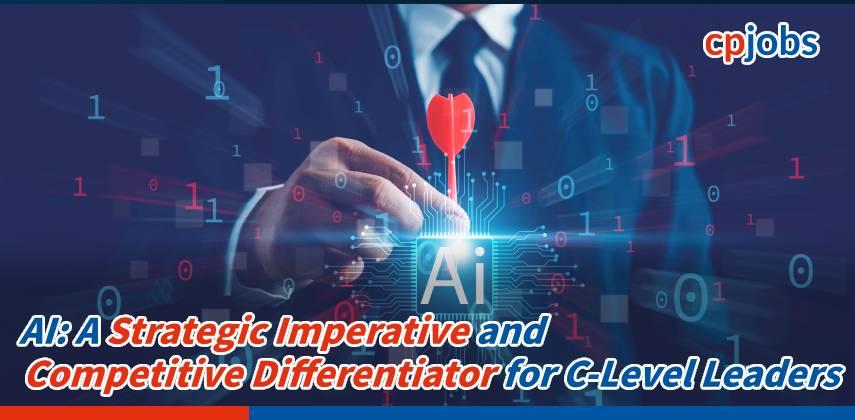In today’s dynamic business landscape, Artificial Intelligence (AI) has transcended its role as a mere technological advancement; it has become a fundamental strategic imperative and a potent tool for competitive differentiation. For C-level executives, understanding and leveraging AI is no longer optional but essential for long-term survival and growth. This article explores why AI is critical for shaping unique market positions, future-proofing organizations, and unlocking unprecedented opportunities for innovation and revenue generation.
Gaining a Decisive Competitive Advantage
The rapid pace of technological change means that standing still is effectively moving backward. AI offers a powerful means to gain a significant edge over competitors. By integrating AI into core business functions, organizations can:
• Optimize Operations: AI-driven automation and predictive analytics can streamline processes, reduce operational costs, and improve efficiency to a degree previously unimaginable. This allows companies to deliver products and services faster, more reliably, and at a lower cost than rivals.
• Enhance Decision-Making: AI provides the capability to analyze vast datasets and extract actionable insights in real-time. This translates into more informed and agile strategic decisions, enabling executives to identify market shifts, anticipate customer needs, and respond to competitive pressures with unparalleled speed and accuracy.
• Personalize Customer Experiences: AI’s ability to process and understand individual preferences allows for hyper-personalization of products, services, and interactions. This fosters deeper customer loyalty and creates unique value propositions that are difficult for competitors to replicate.
Companies that embrace AI strategically can redefine their competitive playing field, moving beyond traditional advantages to build new, data-driven strengths.
Future-Proofing the Business in a Dynamic Landscape
The business world is constantly evolving, with new challenges and opportunities emerging at an accelerating pace. AI serves as a critical enabler for future-proofing an organization by fostering adaptability and resilience:
• Agility and Responsiveness: AI systems can analyze real-time data to detect emerging trends, potential risks, and shifts in consumer behavior far more quickly than traditional methods. This allows businesses to adapt their strategies, product offerings, and operational models with greater agility.
• Scalability and Growth: AI infrastructure can be scaled to handle increasing data volumes and complex computations, enabling organizations to grow without being bottlenecked by manual processes or limited analytical capabilities. This lays the groundwork for sustainable expansion into new markets or product lines.
• Risk Mitigation: From advanced cybersecurity defenses to fraud detection and supply chain disruption prediction, AI helps identify and mitigate risks proactively. This protects assets, reputation, and continuity, ensuring the business can navigate unforeseen challenges effectively.
By embedding AI into their strategic fabric, companies can build a more robust and adaptable enterprise, prepared to thrive amidst uncertainty and disruption.
Unlocking Innovation and New Revenue Streams
Perhaps one of the most exciting aspects of AI for C-level leaders is its immense potential to drive unprecedented innovation and open up entirely new avenues for revenue.
• Accelerated Product Development: AI can drastically reduce the time and cost associated with research and development. From simulating new materials to optimizing design parameters, AI empowers faster iteration and the creation of novel products and services.
• Data Monetization: As AI generates more valuable insights from organizational data, new opportunities arise to monetize this intelligence directly, whether through offering data-as-a-service or creating entirely new information-based products.
• Disruptive Business Models: AI enables the creation of entirely new business models that were previously impossible. Examples include subscription services powered by predictive maintenance, AI-driven personalized education platforms, or autonomous logistics networks.
• Enhanced R&D and Creativity: Beyond automation, AI can augment human creativity and research efforts, helping teams explore complex problems, generate novel ideas, and discover breakthroughs faster.
In conclusion, for C-level executives, AI is far more than a technological upgrade; it is a fundamental shift in how businesses can operate, compete, and innovate. Embracing AI strategically, with a clear focus on its potential for competitive advantage, future-proofing, and driving new revenue streams, will be the defining characteristic of leading organizations in the coming decade. Those who integrate AI deeply into their strategic planning will not only survive but will lead the charge in their respective industries.





